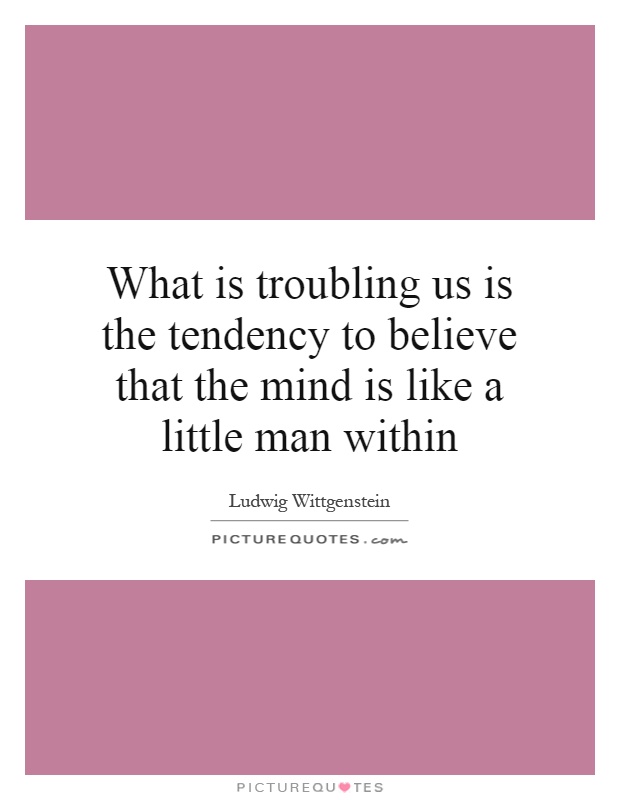What is troubling us is the tendency to believe that the mind is like a little man within

What is troubling us is the tendency to believe that the mind is like a little man within
Ludwig Wittgenstein, a renowned philosopher of the 20th century, was deeply concerned with the nature of language, thought, and the mind. One of the key ideas that he grappled with was the tendency for people to believe that the mind is like a little man within. This notion, which he found troubling, suggests that there is a separate, autonomous entity within us that controls our thoughts, actions, and decisions.Wittgenstein believed that this view of the mind as a little man within was a fundamental misunderstanding of how the mind actually works. He argued that the mind is not a separate entity that exists independently of the body, but rather that it is intimately connected to our physical being and our interactions with the world around us. In his famous work, the Philosophical Investigations, Wittgenstein explored the ways in which language shapes our understanding of the mind and the world, and he sought to debunk the idea of the mind as a little man within.
One of the key problems with the idea of the mind as a little man within is that it implies a dualistic view of the mind and body, where the mind is seen as a separate, immaterial entity that is distinct from the physical body. This dualism has been a persistent theme in Western philosophy, dating back to the ancient Greeks, but Wittgenstein sought to challenge this traditional view and offer a more holistic understanding of the mind-body relationship.
For Wittgenstein, the mind is not a little man within, but rather a complex network of thoughts, beliefs, emotions, and experiences that are shaped by our interactions with the world. He believed that language plays a crucial role in shaping our understanding of the mind, and that our concepts of the mind are deeply intertwined with the ways in which we talk about it.












 Friendship Quotes
Friendship Quotes Love Quotes
Love Quotes Life Quotes
Life Quotes Funny Quotes
Funny Quotes Motivational Quotes
Motivational Quotes Inspirational Quotes
Inspirational Quotes